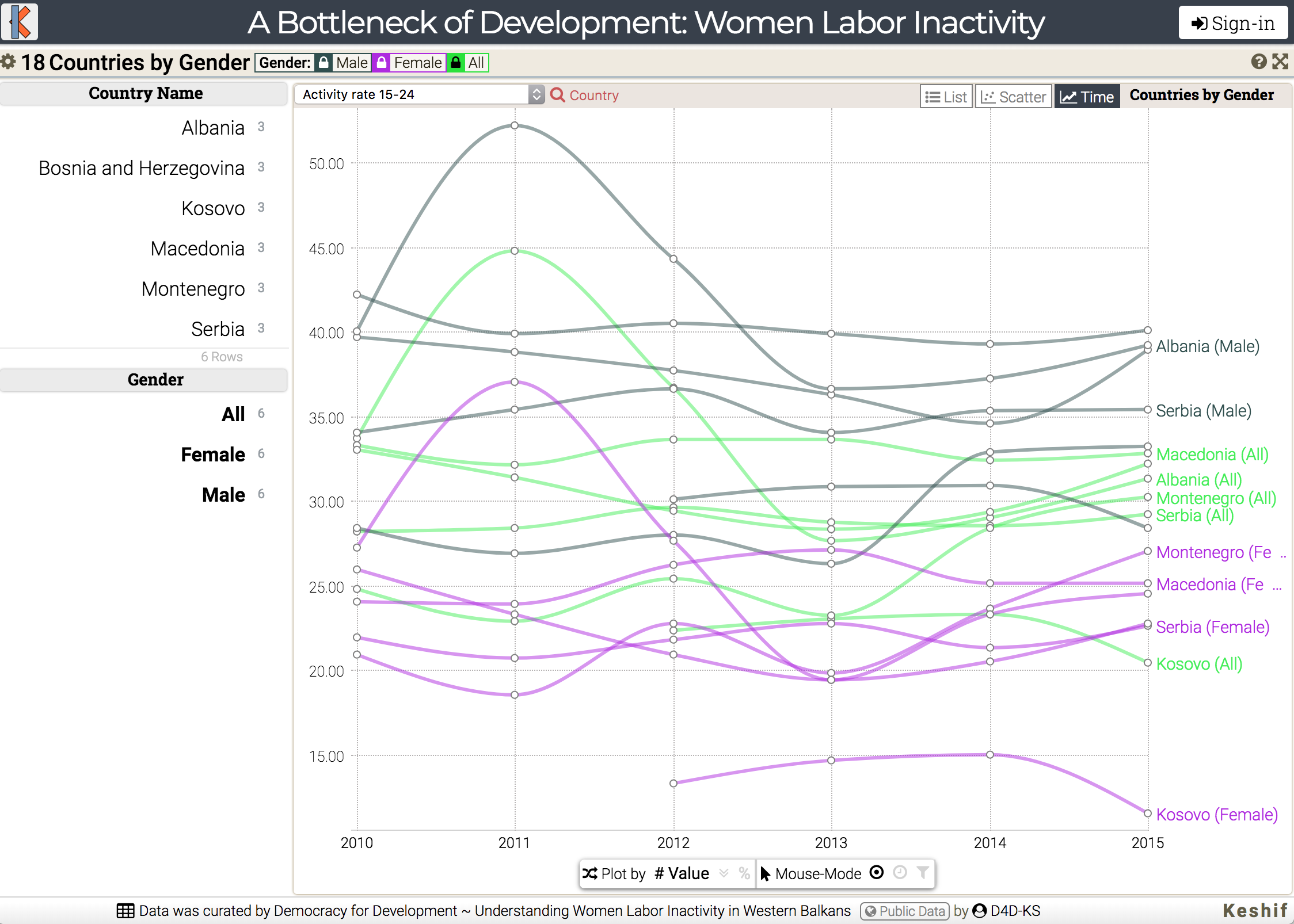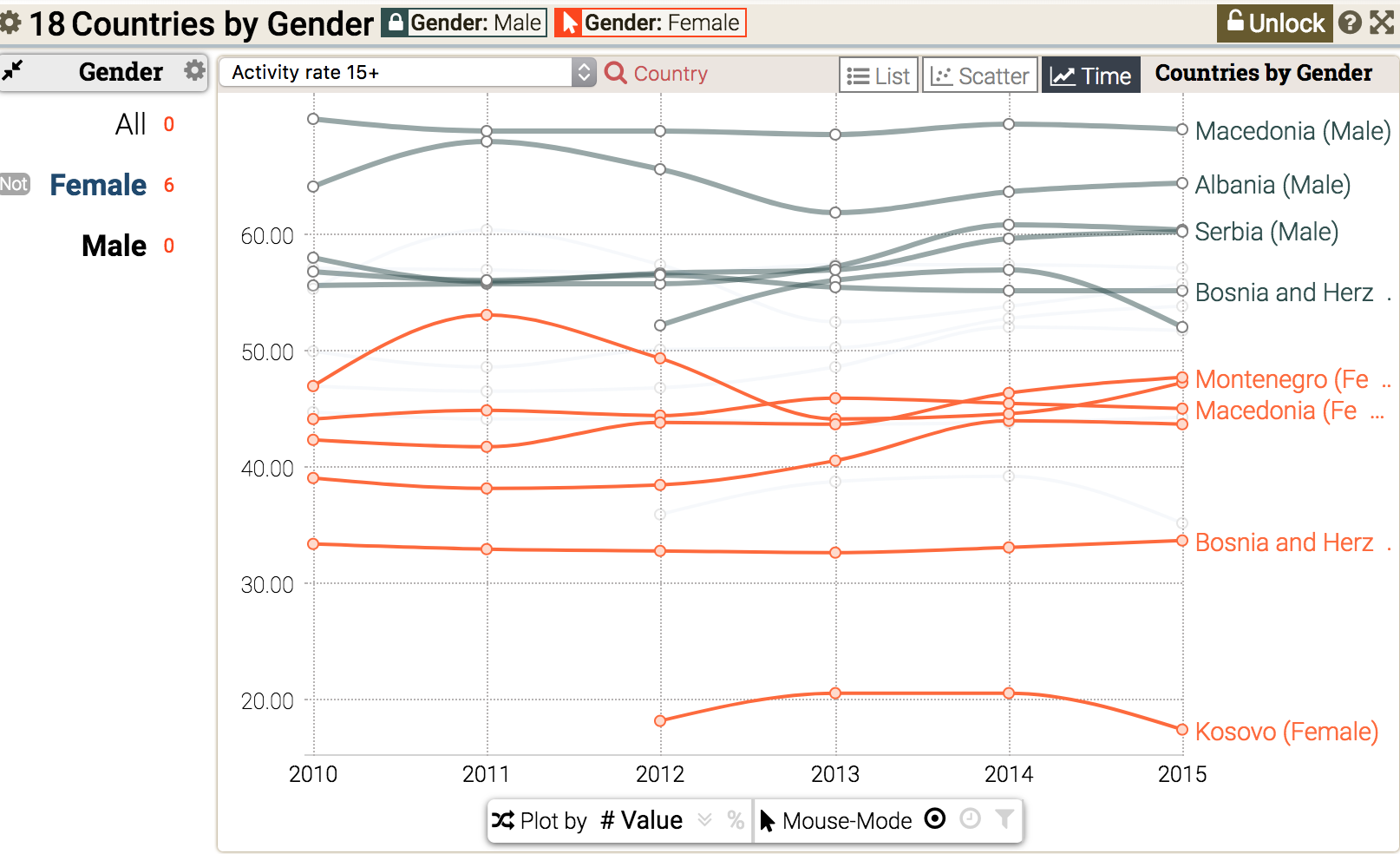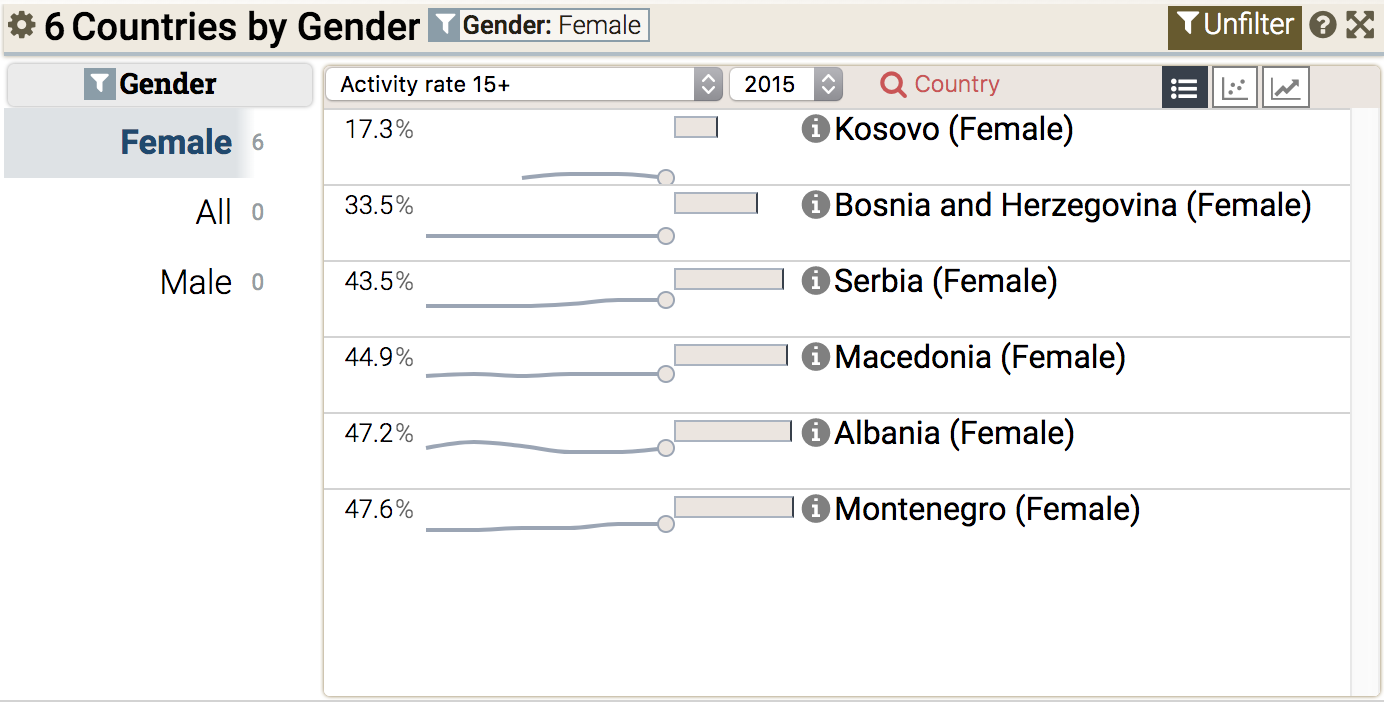Democracy for Development (D4D)
A Bottleneck of Development in Western Balkans: Women Labor Inactivity
Only one in eight women in Kosovo are either looking for a job or employed, putting the country among the lowest in Europe when it comes to women’s participation in the workforce. Exclusion to of women in the workforce is one of the key bottlenecks to Kosovo’s path to development. To better understand this phenomenon in a regional context, Democracy for Development used Keshif to look at various economic and social indicators for six Western Balkan Countries (Kosovo, Serbia, Albania, Montenegro, Macedonia, and Bosnia & Herzegovina) from 2010 to 2015. The indicators pertain to countries' GDP, employment, asylum seekers, economic (in)activity rates, and other related indicators.

Insights
 View
View
The countries with the largest labor activity rates in Balkans are Macedonia, Albania, and Bosnia & Herzegovina, which all have high rates for male labor activity. The countries with the lowest labor activity rates are Kosovo and Serbia, mainly due to women’s lack of involvement in the labor market.
 View
View
Around 80% of women in Kosovo are inactive in the labor market, which makes Kosovo the country with the highest women inactivity rate in the Balkan region.
About Democracy for Development (D4D)
Democracy for Development (D4D) aims to influence the development of public policy in order to accelerate socio-economic development, improve governance, and strengthen democratic culture in Kosovo. D4D’s vision is to promote an active and educated citizenry that fully participates in the public space and utilises the public arena of representation and decision-making to deliberate and build consensus over smart, efficient, and sustainable resource allocation, as well as equitable development.

Participants

Gersi Gashi
Gersi Gashi is a policy researcher at the Democracy for Development Institue. He is a graduate from the Rochester Institute of Technology, having majored in public policy and economics. His experience lies in the democracy and governance and other related topics including the rule of law, higher education, and social welfare.

Valëza Zogjani
Valëza Zogjani works as a project manager and researcher at Democracy for Development. She has four years of experience in planning, monitoring and evaluating, and social and economic development projects. Valëza has previously worked as an analyst on issues pertaining to parliamentary immunity, educaiton and good governance. Valëza holds a Master’s in Political Science from Linköping University, Sweden.

Blerinë Ukshini
Blerine Ukshini works as a project assistant at Democracy for Development. She holds a Masters degree in European Integration and Public Adminsitration from the University of Prishtina. She has previously participated in intiatives with the National Democracy Institute in Kosovo and Erasums + in Slovenia.